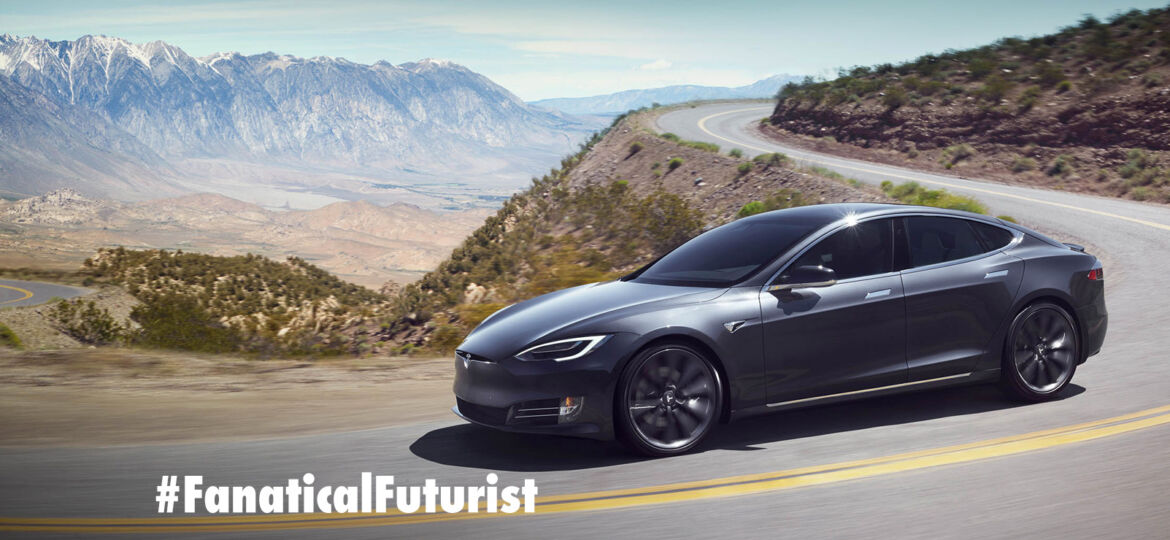
WHY THIS MATTERS IN BRIEF
As the world starts to move away from fossil fuels we need to find new ways to squeeze more power from our batteries, and innovations like this one help us achieve that.
In the latest battery breakthrough claim researchers from the University of Waterloo released a new paper claiming a breakthrough involving the use of negative electrodes made of lithium metal, and they claim that it has the potential to “dramatically increase battery storage capacity.” In fact so much so that it “could triple the range of electric cars,” from 200 kilometers on average today to over 600 kilometers. That is, of course, until we see the day that cars, like this futuristic Lamborghini concept car don’t need batteries because they become the battery…
The breakthrough involves the use of negative electrodes made of lithium metal, a material with the potential to dramatically increase battery storage capacity.
“This will mean cheap, safe, long-lasting batteries that give people much more range in their electric vehicles,” said Quanquan Pang, who led the research while he was a PhD candidate in chemistry at Waterloo.
The increased storage capacity, or energy density, could boost the distance electric vehicles are able to travel on a single charge, from about 200 kilometres to 600 kilometres. In creating the technology, Pang and fellow researchers, including supervisor Linda Nazar, a professor of chemistry at Waterloo and a Canada Research Chair in Solid State Energy Materials, had to overcome two challenges. The first challenge involved a risk of fires and explosions caused by microscopic structural changes to the lithium metal during repeated charge-discharge cycles.
The second involved a reaction that creates corrosion and limits both how well the electrodes work and how long they last. Researchers solved both problems by adding a chemical compound made of phosphorus and sulfur elements to the electrolyte liquid that carries electrical charge within batteries. The compound reacts with the lithium metal electrode in an already assembled battery to spontaneously coat it with an extremely thin protective layer.
“We wanted a simple, scalable way to protect the lithium metal,” said Pang, now a post-doctoral fellow at MIT, “with this solution, we just add the compound and it works by itself.”
The novel approach paves the way for electric vehicle batteries that enjoy the benefits of lithium metal electrodes – greater storage capacity and therefore greater driving range – without compromising safety or reducing lifespan.
As usual, we need to be careful with “battery breakthrough” claims. It’s relatively easy to make a battery capable of fast-charging or having a high energy density, or a battery that is inexpensive or durable, but it’s extremely hard to make a battery good at all those things, which is the holy grail of battery technology. What this team at the University of Waterloo did is apparently make lithium metal electrodes work well in the lab, but will it ever turn into a viable commercial product? We don’t know – yet.
Source: Joule

















How many times have we heard this before? The new Nissan Leaf was meant to get you half way round the world but it turns out that you’d be lucky to get to see your great Aunt Doris in Dorking if if you lived anywhere in London.
Hi Justin – you’re right… lots and lots, however, that said, ranges are increasing and battery storage energy densities are also increasing so these innovations are (slowly) having an impact. In the meantime there’s always the hydrogen powered bus if you need to get to Dorking
Encouraging news.
Contemporary Lithium Batteries are Unsustainable.
Given that this battery still has liquid electrolyte, does it have the fire resistance of the new solid state dry Lithium batteries?
Hi Richard, good question and probably not… but there is this new solid state battery that so far noone’s been able to get to catch fire, the company just received some big investment as well from “the big guys”:
https://www.fanaticalfuturist.com/2018/06/ionic-materials-solid-state-battery/